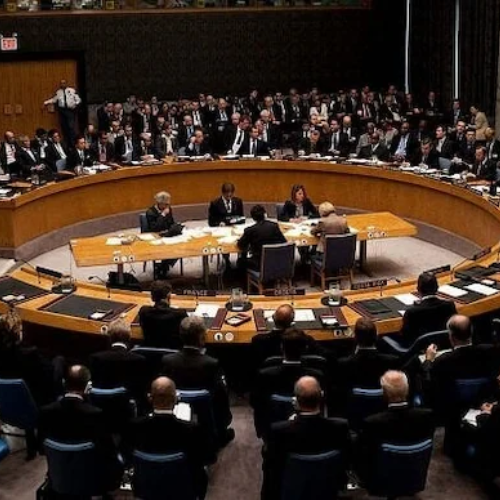In 2025, Pakistan will take on an important role at the United Nations. It will chair the United Nations Security Council (UNSC) committee that oversees sanctions against people and groups linked to the Taliban.
This committee is known as the 1988 Taliban Sanctions Committee. The job of this committee is to make sure that certain actions are taken against individuals and organizations connected to the Taliban who are seen as a threat to Afghanistan’s peace and safety.
The sanctions include freezing bank accounts and money, banning people from traveling to other countries, and stopping the supply of weapons to them. These steps are meant to make it harder for Taliban-linked individuals and groups to operate freely. This committee plays a big role in maintaining security and stability in Afghanistan by keeping an eye on those who may try to harm the peace process.
Pakistan is a non-permanent member of the 15-nation UN Security Council for the 2025–2026 term. These non-permanent members are chosen for two years, and they rotate regularly. In addition to Pakistan, the non-permanent members of the UN Security Council include Algeria, Denmark, Greece, Guyana, Panama, South Korea, Sierra Leone, Slovenia, and Somalia.
White House Used Trade Tariffs to Halt Missile Strikes Between India and Pakistan, Says Lutnick
Other Key Roles for Pakistan at the UN
In addition to leading the Taliban Sanctions Committee, Pakistan will also take on the role of vice-chair in the UN Security Council’s Counter-Terrorism Committee. This committee helps make sure that all countries follow international rules to fight terrorism. It was created under resolution 1373. For 2025, Algeria will lead this committee, while France, Russia, and Pakistan will be vice-chairs.
Pakistan’s role does not stop there. It will also help lead two informal groups at the UN Security Council. One of them focuses on documentation and procedural questions. This means they help with how meetings are run, what papers are needed, and how rules are followed. The other group looks at overall sanctions issues across different UNSC committees.
All of these positions mean Pakistan will have a strong presence in many of the Council’s activities in 2025. It will have an important voice in discussions on security, terrorism, and international peace.
China Defends Pakistan’s Terror Architects—IC-814 Hijacker’s Brother Escapes Sanctions
Other Countries in the Picture
In the same year, Denmark will be in charge of another important committee — the 1267 ISIL and Al-Qaida Sanctions Committee. This group handles sanctions on terrorist groups like ISIS and Al-Qaida. Russia and Sierra Leone will serve as the vice-chairs for that committee.
Russia and Guyana will also work alongside Pakistan as vice-chairs of the Taliban Sanctions Committee. These positions are chosen each year based on negotiations and agreements between UN member states.
In 2025, five new non-permanent members of the Security Council were elected. These countries — Bahrain, the Democratic Republic of the Congo, Liberia, Latvia, and Colombia — will start their terms in January 2026 and serve for two years.
Meanwhile, the five permanent members of the UNSC stay the same. These are China, France, Russia, the United Kingdom, and the United States. These five countries have been permanent members since the UN was formed after World War II. They have special powers in the Security Council, including the ability to veto resolutions.
It is also important to remember that in 2022, another South Asian country had chaired the Counter-Terrorism Committee. This indicates that the region continues to be deeply involved in global discussions about security and terrorism.


